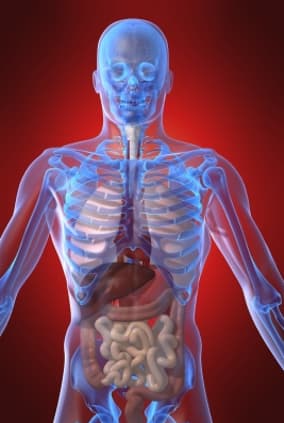INDIGESTION OVERVIEW
Go into any supermarket or pharmacy, and you will find aisles filled with antacids that would reduce heart burn, acidity or laxatives and formulas that relive gas and constipation.
Turn on the television, and you will see at least one television advertisement for reducing heart burn or gas after eating and improving diarrhea.
THIS IS TESTIMONY TO THE FACT THAT INDIGESTION IS A PERVASIVE PROBLEM IN OUR SOCIETY.
What is classified as indigestion?
Indigestion is a catch all term to describe a number of minor discomforts associated with eating such as:
- A mild burning sensation after eating
- Bloating and diarrhea
- Gas / Flatulence
- Slow Digestion
- Regurgitation
- Acid reflux / acidic taste in the mouth after eating
- Nausea
- Constipation
- Feeling of heaviness after eating in the stomach
- Belching
- Poor Appetite
UNDERSTANDING DIGESTION
Each year we eat about ½ ton of food. The food goes through a complex process of digestion comprising of many organs that are involved in the production of various enzymes and substances that enhance and facilitate the breakdown and assimilation of food. Digestion begins when we take in that morsel of food or that sip of juice – i.e. it starts in the mouth and ends in the colon. Indigestion occurs when there is difficulty breaking down and assimilating foods after a meal.
Generally if the body is healthy and if the mind is experiencing healthy day to day stress, then food or certain elements of the digestive tract maybe responsible for digestive tract disorders such as irritable bowel syndrome, colitis, various forms of indigestion and constipation. However if an individual is experiencing very high levels of stress, to a point where it actually affects the daily activities for a long period of time, it is possible that the nervous system action is partially responsible for indigestion and maybe constipation.
Everyone produces small amounts of gas, which is normally eliminated through belching and by passing it through the anus. The average adult produces about one to three pints of gas each day and passes gas through the anus about 14 to 23 times per day. Burping occasionally before or after a meal is also normal. The amount of gas varies depending upon diet and individual factors.
The digestive tract is a tube over 25 to 30 feet long, consisting of the mouth, pharynx, oesophagus, stomach, small intestine, large intestine, liver, gall bladder and pancreas, rectum, and anus. The teeth, the churning motion of the stomach and the acid, enzymes and other chemicals produced by various digestive glands break down the food into minute pieces, namely proteins, carbohydrates, fats, vitamins, minerals, fiber and water, all of which are needed to function normally.
These nutrients are then absorbed either by the blood or lymph and transported throughout the body. They are converted into immediate energy used by cells, saved energy stored within cells, or building blocks for cell growth and repair. The fate of such nutrients depends partly on the form in which they entered the body and on the body's particular needs at any given time. Those substances that are not digestible continue through the digestive tract as waste and are prepared for a proper exit as faeces.
Related Articles
Candidiasis
Candida overgrowth in the gastrointestinal tract is now becoming recognized as a complex medical syndrome known as chronic candidiasis or the yeast syndrome. Symptoms include: Multiple food allergies, or allergic to all foods( pan allergic), alternating diarrhea with constipation.
Chronic Fatigue
Chronic Fatigue Syndrome (CFS) is described as a severe, debilitating fatigue, lasting at least six months (of new and definite onset), associated with at least four of the following symptoms: impaired memory or concentration, sore throat, muscle pains, joint pains, unrefreshing sleep and post-exertion malaise.
Irritable Bowel Syndrome
Irritable bowel syndrome (IBS) - a diagnosis of exclusion, this condition is often misdiagnosed. Severe food intolerances / allergies may exhibit symptoms that are similar to Irritable Bowel Syndrome such as pain, cramping, gassiness, sudden bouts of diarrhoea, and constipation.







